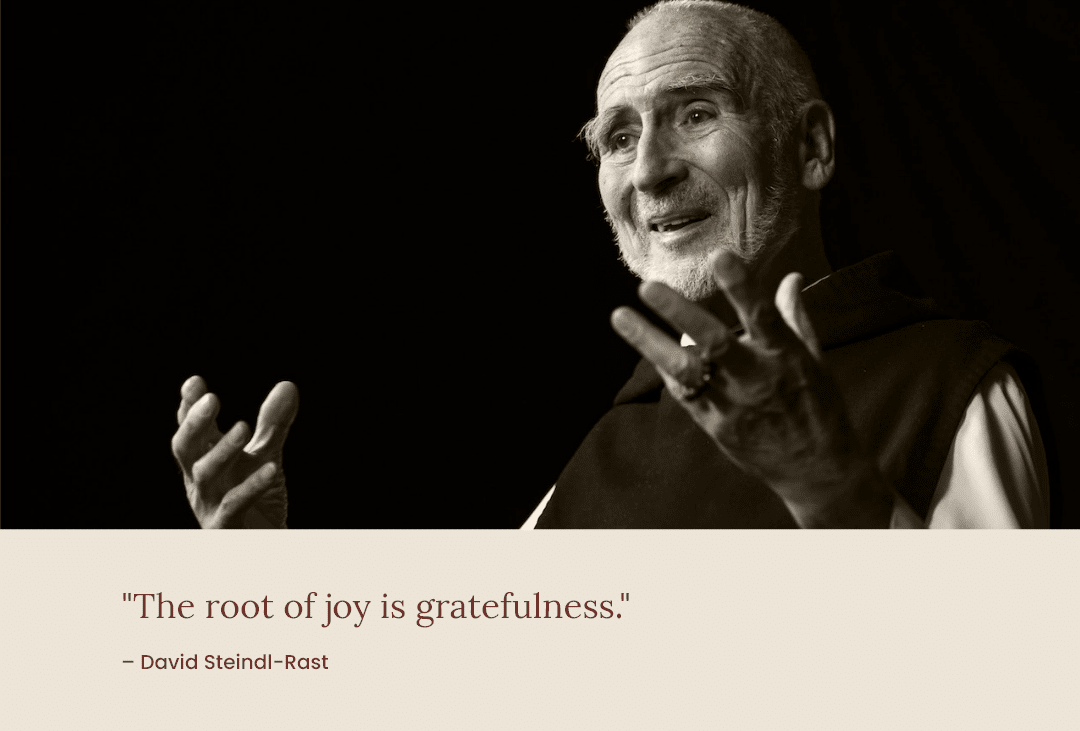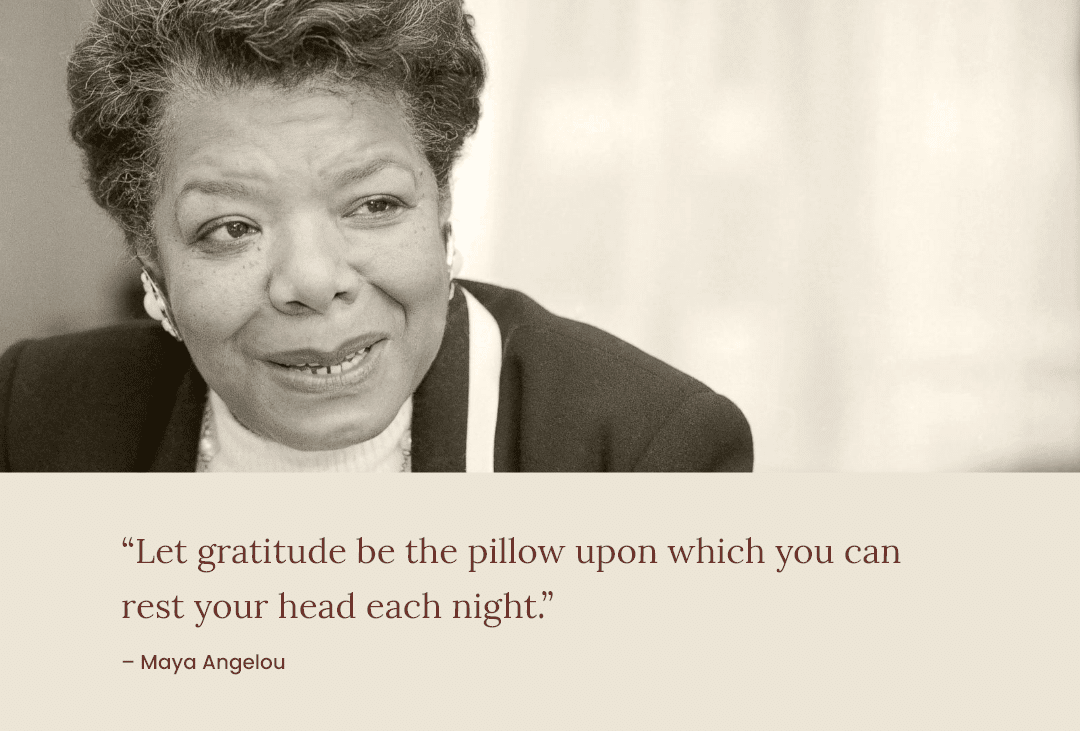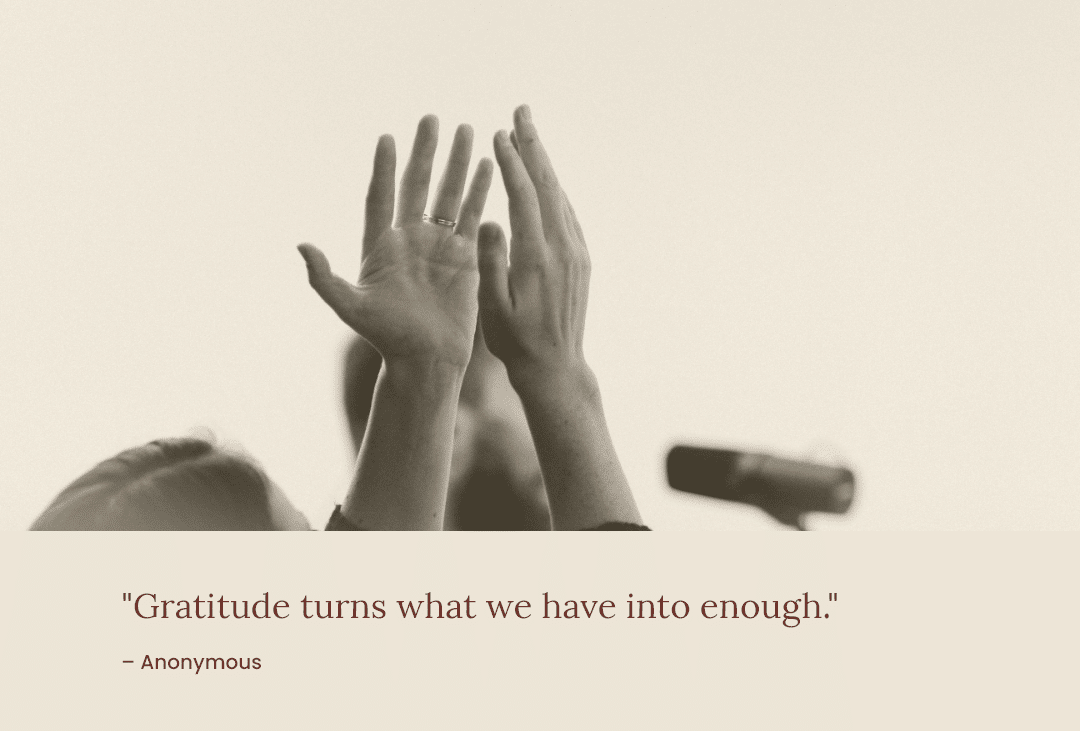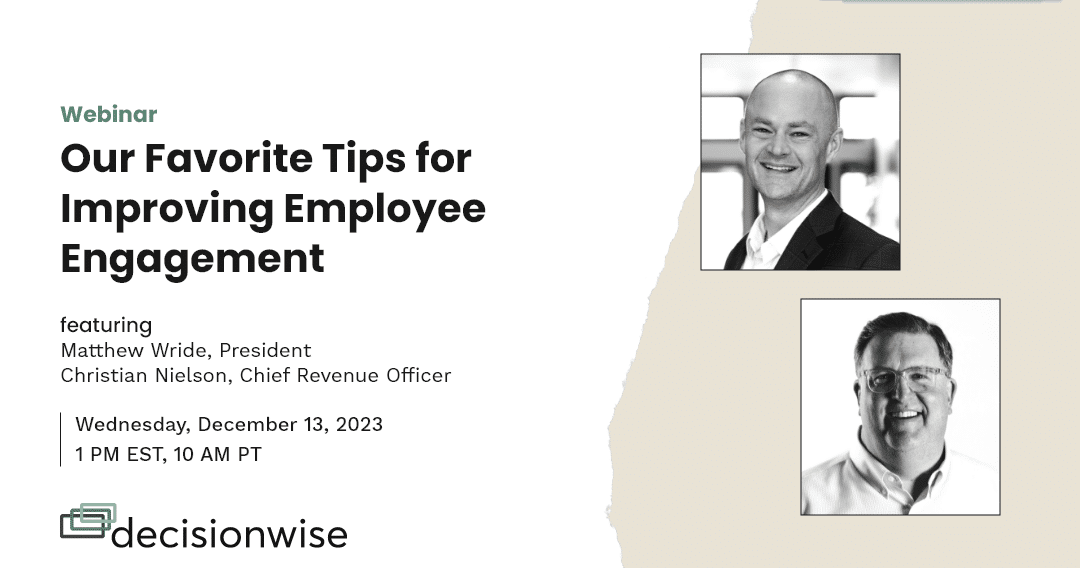What’s Happening at DecisionWise
DECEMBER WEBINAR
In this upcoming DecisionWise webinar, our experts will share some of their favorite tips and techniques for strengthening employee experience and improving employee engagement.
Whether you’re conducting your first employee survey or your fiftieth, come gain proven ideas that are sure to benefit you and your organization.
As always, we invite all attendees to bring their best ideas and questions to add to the discussion. We hope you’ll join us!
Featured Discussion
In the fast-paced and sometimes competitive world of modern workplaces, it is easy to get caught up in the hustle and bustle, often forgetting to appreciate the things that make our working lives meaningful. And we also forget how many of those things come from, and by way of, others. The question for each of us to consider is whether we are grateful for the positive things we receive from those around us.
This article’s premise is that embracing gratitude in the workplace can be a game-changer, not only for individual well-being but also for the overall success of a team and organization.
What Is Gratitude?
Interestingly, we instinctually know what gratitude is because we have felt it in our lives. But have we ever spent much time defining what gratitude means? Surprisingly, gratitude can be difficult to define. Is it an emotion? A virtue? A behavior? Added to these questions is the challenge that gratitude has different meanings across cultures and contexts.
For our purposes, let us use the definition that researchers have developed so that gratitude can be studied scientifically. I like the one that Robert Emmons and Michael McCullough offer. They define gratitude as a two-step process: 1) “recognizing that one has obtained a positive outcome” and 2) “recognizing that there is an external source for this positive outcome.”
I think this definition is important because it highlights a key component of gratitude that is both troubling and empowering: We need others to be successful. This idea can be scary for those who want independence and encouragement when we fully appreciate the collective power we all have by working together.
Unlocking Gratitude’s Power:
This working definition, however, does not fully explain gratitude’s transforming power. To me, gratitude’s power lies in how it shifts our thinking from what we lack to what we have. Even if we do not have a lot, understanding what we do have is key to utilizing our key gifts and assets to build better businesses, lives, families, and communities.
Being Grateful at Work:
Turning to this article’s main point, our research findings at DecisionWise clearly show that gratitude is a key ingredient in building and developing an engaged workforce. Here are a few reasons why gratitude can be a positive, transforming power inside your leadership efforts.
- Boosting Morale and Motivation
Expressing gratitude for a job well done, whether big or small, can significantly boost morale among team members. Recognizing and appreciating individual and collective efforts creates a positive work environment, fostering a sense of pride and motivation. People want to be noticed, and gratitude is a particularly powerful way to notice people because it highlights the good things they have done for you. There is no more powerful form of feedback: (1) you did something good for me; (2) I see and feel what you have done; (3) I am acknowledging what you did for me. - Fostering a Positive Culture
A workplace steeped in gratitude is more likely to have a positive and inclusive culture. When employees feel valued and appreciated, they are more likely to engage in collaborative efforts, share ideas, and contribute positively to the team’s dynamics. Plus, in my experience, gratitude that is shared publicly is particularly powerful because it reinforces positive behavior, but it ensures that people receive the attention and credit they crave. - Enhancing Team Collaboration
Gratitude encourages a sense of camaraderie among team members. Acknowledging each other’s contributions fosters a culture of collaboration, where individuals are more willing to support one another and work towards common goals. Nothing is better than rowing together towards success.
Three Practical Ways to Incorporate Gratitude:
While it’s easy to extol gratitude’s benefits and virtues, permit me to offer some practical suggestions on how to directly incorporate gratitude into the workplace.
- Regular Recognition Programs
Establishing regular recognition programs, whether weekly or monthly, can provide a structured platform for expressing gratitude. This could include employee of the month awards, shout-outs during team meetings, or acknowledgment through internal communication channels. - Personalized Appreciation
Taking the time to offer personalized appreciation can have a profound impact. A handwritten note, a personalized email, or a brief one-on-one conversation expressing gratitude for specific contributions shows genuine appreciation and goes a long way in building positive relationships. - Gratitude in Challenging Times
It’s during challenging periods that the power of gratitude becomes even more evident. Expressing thanks and acknowledging efforts during tough times not only uplifts spirits but also instills a sense of resilience and unity within the team.
The Ripple Effect:
Gratitude is contagious. When leaders and team members actively express appreciation, it creates a ripple effect throughout the organization. It sets a positive tone, influencing the overall workplace atmosphere and contributing to a more enjoyable and fulfilling professional experience for everyone involved.
Conclusion:
Incorporating gratitude into the workplace isn’t just a feel-good gesture; it’s a strategic investment in the success of your team and organization. By fostering a culture of appreciation, you not only enhance individual well-being but also contribute to a collaborative, positive, and thriving work environment. So, let’s make gratitude a cornerstone of our professional lives, reaping the benefits of a workplace where everyone feels valued and motivated to bring their best selves to the table every day.





